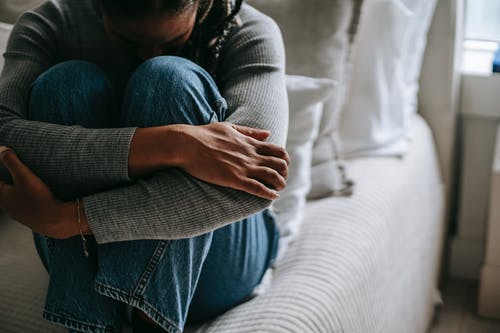
How to be there for your grieving friend without attending a funeral
Everyone grieves differently and that is something that is important to remember when you want to try to help a friend. Even though going to the funeral is what we would usually do to support them, this is not always possible, especially at the moment. Over the past two years, there's been restrictions on funerals, friends have been asked not to come and visit, meaning there are less distractions happening to take your mind away from the death.
But there are Covid-19 friendly ways to support your friends through this difficult and unprecedented time.
Stay in touch

This one is so important. Even if your friend isn’t quite reaching back out to you right now, staying in contact with them is important. It can feel awkward, like you don’t quite know what to say, but they’ll appreciate the distraction and knowing that someone is thinking of them. Seeing someone actively reaching out gives them the opportunity to talk if they want it, rather than feeling like they’re bothering people. It’s important to be consistent with this one – with everything else up in the air in their lives, having someone steady can make all the difference. Listening is key.
Meal prep
The days after the death of a loved one can feel like a blur. It can be difficult to remember to eat, or even find the motivation to cook. Food is comforting and essential to get them through this. By cooking up something that’s easy to heat up and serve, like a lasagna or a casserole, it can take a responsibility off their hands, especially if they are living alone or are usually the cook in their house. If they are living far away, ordering some food from their favourite takeaway to be delivered to their house is also a nice and helpful gesture.
Offer practical help

Aside from food, there may be other little jobs and things that need doing that they may feel too overwhelmed to handle at the moment. Offering to do things like post items, doing their shopping or even doing some child-minding can help them to get back on their feet or just take a little down time. Everyone says ‘let me know what I can do’, whereas often, it’s better to just do something for them.
Distract them

Some people may want to talk and other may want to do anything but. If they’ve had a rough day and all they want to do is crash, setting up something like a Netflix party together could be a good way to keep their mind off of things. Even if you can’t physical be there for them right now, there is something comforting about sticking on one of your faves and nattering away together about inconsequential things. We don’t get to dictate how other people grieve, so let them deal wit this how they want to.
Be there on important dates

The one-month anniversary, six months, a year – it will be appreciated if you remember these things. Letting go is harder when you feel everyone else is forgetting too. But something as simple as sending a message about the deceased or a ‘thinking of you and your _____ today’ let’s them know they’re not alone. And in that same vein, don’t always expect a reply – it can be overwhelming, especially at the start, fielding so many messages and well-wishers. It becomes another pressure to get back to everyone on top of all the grief they are already dealing with.
Keep an eye on them
There is no timeline with the grief process. Some people may need longer than others and some people may need more help with it than others. If it’s becoming overwhelming, there are sources that can be reached out to. With the Samaritans you can freephone 116 123 every day 24 hours a day. Check out here for more services.







